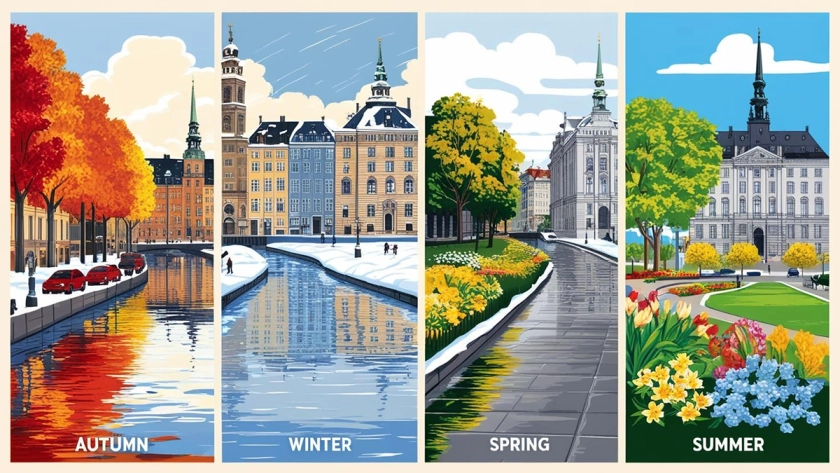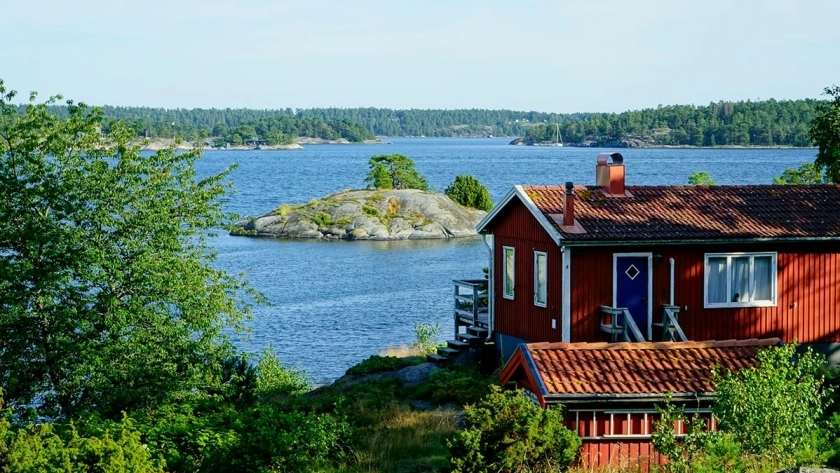
In recent years, Sweden has ranked among the most pleasant places to live. In 2016, it also surprisingly claimed the top spot in the list of the world's best countries. This ranking, based on the Good Country Index created in 2014 by British consultant Simon Anholt, assesses a country’s contributions to the global community. Anholt developed a set of criteria to quantify each nation’s impact on the well-being of humanity and the planet. This ranking, available on the Good Country website, relies on 35 indicators provided by international organizations such as the United Nations and the World Bank. Divided into seven categories, these indicators allow for an evaluation of each country’s contributions to, and impacts on, the world as a whole.
1. Prosperity and Equality
Leading in this category among 163 countries, Sweden (closely followed by Denmark in third place) embodies a strong commitment to equality and a genuine political will to share prosperity. While the Nordic model and a high level of social trust contribute to these impressive results, the Swedish mindset also plays a key role in this achievement.

In Sweden, one word aptly summarizes this philosophy of equitable wealth distribution: lagom, which means “just the right amount” for everyone—neither too much nor too little. This principle inspires many Swedes to maintain a balanced approach in all circumstances.
2. Health and Well-being
Also ranking first in this category, Sweden stands out with impressive statistics in generosity and altruism, particularly through its pharmaceutical exports and humanitarian contributions.

Swedish solidarity is demonstrated both nationally and internationally. Its commitment to migrants, exemplifying a desire to ensure health and well-being for all, is a notable example, despite some criticism. Other initiatives also reinforce this image of Swedish dedication, such as support for women's rights and freedom, as well as the right to education for everyone.
3. Science and Technology
Ranked eighth in this category, Sweden, home of the Nobel Prize (a factor included in the evaluation criteria), holds a strong position. It stands out due to a substantial budget, sustained investments, supportive legislation, regular patent filings, and effective international cooperation—all of which reflect its vitality in the fields of science and innovation.

Its scientific and innovative profile, marked by consistent dynamism and a deeply rooted passion for experimentation, suggests a potential rise in the rankings over the coming years.
4. Culture
Ranking third after Norway and Denmark, Scandinavia remains an undeniable model in this area. Freedom of expression and freedom of the press, enshrined in the constitutions of Scandinavian countries, are paired with a demand for transparency among public figures, thereby reducing the risk of corruption. This culture of transparency fosters trust and strengthens solidarity among citizens.
5. International Peace and Security
Despite a long tradition of neutrality and pacifism, Sweden ranks poorly in this area. Although the country improved from 111th to 52nd place after withdrawing its troops from Afghanistan in 2014, it still struggles with a negative reputation due to arms exports to conflict zones. With the world’s third-highest per capita arms exports, following Russia and Israel, Sweden maintains an industry rooted in its military history and Cold War-era independence strategy. However, this arms trade weighs heavily on its commitment to international peace and security, and finding a better balance may be necessary in the future.
6. World Order
Ranked 11th, Sweden stands out for its migrant-welcoming policies, generous spirit (through donations and charitable organizations), and ambitious pro-natalist policy.

Although there is room for improvement, Sweden’s global impact remains positive for world stability. Sweden’s independent stance and citizen involvement in validating agreements with the European Union also grant it a mediator role in numerous international debates.
7. Planet and Climate
Ranked 7th, Sweden continues to uphold its commitments in an area where it has long been a pioneer. Although it has slipped a few ranks, it remains, along with its Scandinavian neighbors, a key player in the international environmental dialogue."
 Its economic dynamism and potential for innovation in the field of the environment suggest a better position in the next edition of the Good Country study.
Its economic dynamism and potential for innovation in the field of the environment suggest a better position in the next edition of the Good Country study.
 en
en FR
FR IT
IT ES
ES


